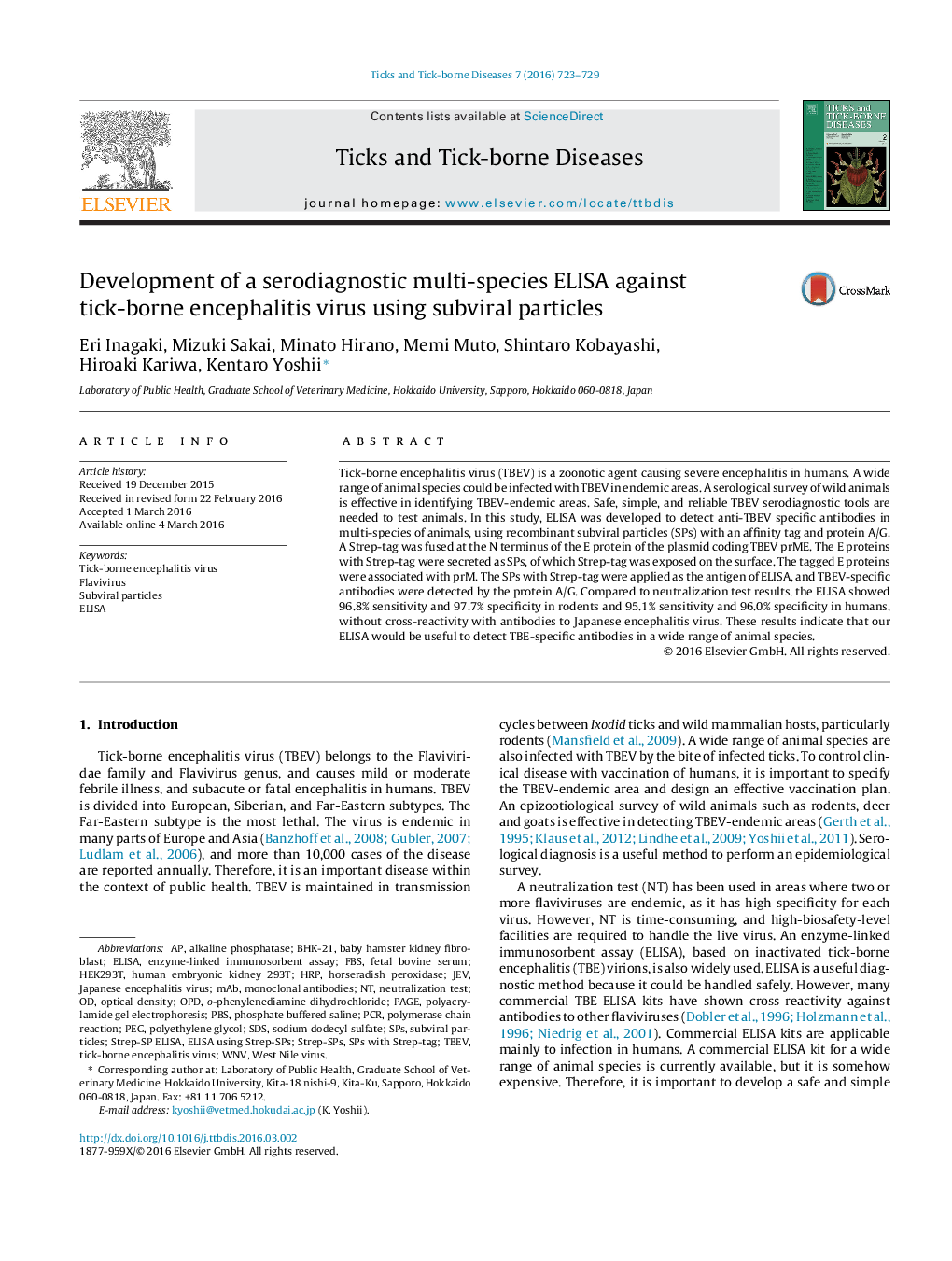| Article ID | Journal | Published Year | Pages | File Type |
|---|---|---|---|---|
| 5546382 | Ticks and Tick-borne Diseases | 2016 | 7 Pages |
Tick-borne encephalitis virus (TBEV) is a zoonotic agent causing severe encephalitis in humans. A wide range of animal species could be infected with TBEV in endemic areas. A serological survey of wild animals is effective in identifying TBEV-endemic areas. Safe, simple, and reliable TBEV serodiagnostic tools are needed to test animals. In this study, ELISA was developed to detect anti-TBEV specific antibodies in multi-species of animals, using recombinant subviral particles (SPs) with an affinity tag and protein A/G. A Strep-tag was fused at the N terminus of the E protein of the plasmid coding TBEV prME. The E proteins with Strep-tag were secreted as SPs, of which Strep-tag was exposed on the surface. The tagged E proteins were associated with prM. The SPs with Strep-tag were applied as the antigen of ELISA, and TBEV-specific antibodies were detected by the protein A/G. Compared to neutralization test results, the ELISA showed 96.8% sensitivity and 97.7% specificity in rodents and 95.1% sensitivity and 96.0% specificity in humans, without cross-reactivity with antibodies to Japanese encephalitis virus. These results indicate that our ELISA would be useful to detect TBE-specific antibodies in a wide range of animal species.
